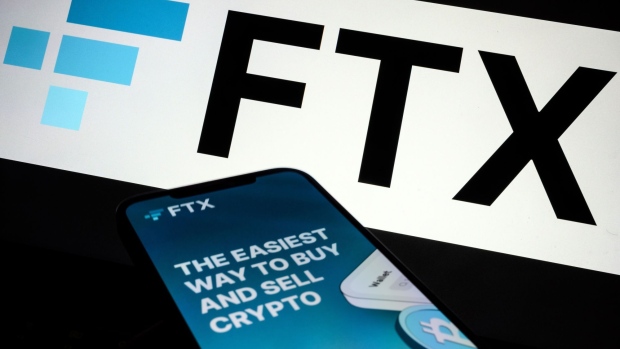Nov 15, 2022
EU Monitoring FTX Collapse With Major Crypto Law in Final Stages
, Bloomberg News

(Bloomberg) -- The European Union is monitoring the collapse of crypto exchange FTX Group as the bloc tries to cross the finish line on adopting a broader set of regulations for digital assets.
The bloc is examining whether the crisis has any consequences for the single market, according to an EU official, who spoke on the condition of anonymity.
The FTX unraveling, which led to its bankruptcy filing and lopped about $200 billion off crypto market value in the last week, is occurring as the EU is about to implement new legislation on supervision of cryptoasset service providers. The measure will also add consumer protection and environmental safeguards for cryptoassets, including digital currencies like Bitcoin and Ether.
After the EU reached a provisional agreement in June on its landmark Markets in Cryptoassets, or MiCA, directive, work has been undergoing legal review and translation into the various EU languages. It will then go to the European Parliament for the final vote, expected in February, before being adopted by the bloc’s 27 member states.
There won’t be any immediate consequences from FTX’s collapse on the path of MiCA’s adoption, as the remaining steps are procedural, not political, another EU official said.
FTX Europe originally gained its license in Cyprus two months ago after acquiring a local business earlier this year, a move which permitted it to operate its services across the EU, Norway, Lichtenstein and Iceland. That license was suspended on Nov. 11 hours after the company’s bankruptcy filing.
FTX Collapse Leaves Power Vacuum on Push for US Regulation
MiCA is intended to bring the unregulated cryptoasset market under a financial-services regulatory framework, help root out bad actors, prevent market abuse, and limit the risks to consumers and market integrity, the first EU official said.
MiCA will also address risks of market manipulation and theft of cryptoassets stemming from providers having inadequate IT security procedures and systems in place. FTX experienced a series of unauthorized withdrawals on Nov. 11 as it moved some funds to other wallets owned by the exchange, with the total size of the theft amounting to more than $475 million.
But there are still questions about whether the legislation is strong enough or whether the EU and its member states can marshal the necessary expertise to enforce it.
“Even though MiCA is finalized, we still foresee multiple ways FTX’s crash will have an indirect and longer-term effect on crypto regulation and its application,” Marina Markezic, a co-founder of the Brussels-based European Crypto Initiative advocacy group, said in a statement.
First presented in 2020, MiCA went through several iterations, with some proving more controversial than others. An earlier draft of the legislation included a clause that sought to effectively ban Bitcoin and other cryptocurrencies created using the energy-intensive proof-of-work mining process, but it was later scrapped following major industry backlash.
--With assistance from Emily Nicolle.
©2022 Bloomberg L.P.





